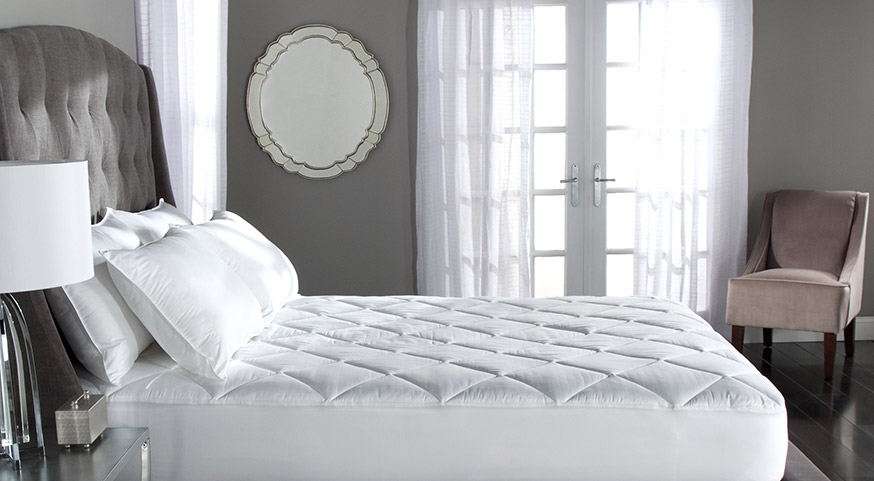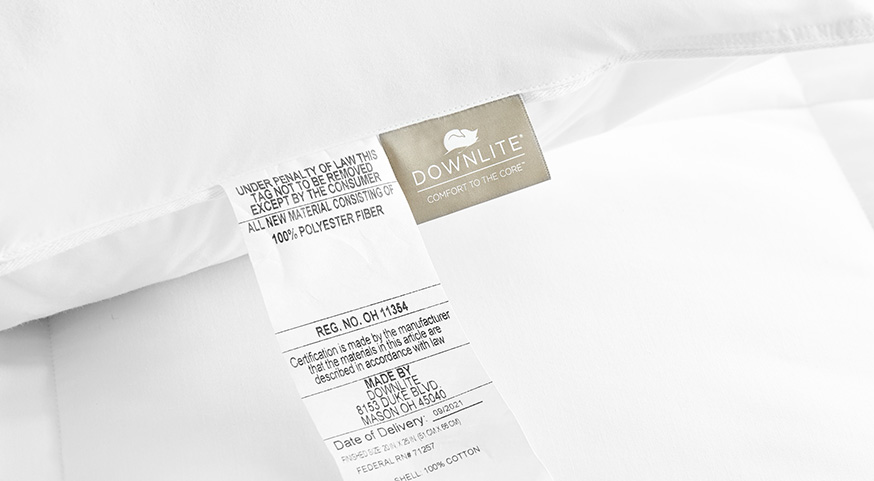Posted by Aline Martin O'Brien on Sep 08, 2020
Greening Your Bedroom
Your responsibility to be eco conscious is not a nice idea to consider for the future -- it’s an expectation today. People all over the world are realizing that it is necessary to reconsider their consumption habits to help preserve our planet. Becoming environmentally responsible starts with sound habits at home, so why not begin where you start your day?
For a more ecological home, consider these suggestions, especially for your bedroom:
- Paint the walls with eco-friendly paints. Regular paints have toxins and pollutants that are harmful to people, animals and the planet.
- Buy furniture produced locally and in non-exotic woods. Buying locally and responsibly helps reduce carbon emissions.
- Invest in LED bulbs over halogen bulbs
- Lower the heat in your room (reduces energy use, AND improves quality of sleep)
- Opt for bed linens in natural or eco-friendly, recycled or recyclable materials
Choose natural or recycled materials for your bedding
Downlite offers a range of eco-friendly bedding and green bedding products made from recycled materials that help our planet while providing you with a cozy sleep environment.
The mattress topper is often overlooked, yet it can significantly improve the comfort and longevity of your bed. The mattress topper provides comfort above and beyond the mattress with soft fluffiness that your body sinks into, enveloping you in softness. Filled with natural materials such as wool, cotton, Tencel fiber made from eucalyptus wood pulp, or organic bamboo fiber, the eco-friendly mattress topper offers additional protection against allergies and it helps regulate your bed’s temperature. Synthetic fillings do not offer the same qualities of breathability.
A soft comforter, fluffy or firm pillows, the correct topper - the accessories essential to the quality of our nights should be selected with the greatest care, and their composition carefully scrutinized. Here, too, we propose natural fibers, post consumer recylcled polyester (like EnviroLoft), or even sustainable down materials.
Organic cotton, linen and TENCEL are preferred for duvet covers, sheets, and pillowcases. TENCEL feels like silk and washes like cotton with amazing moisture wicking properties perfect for the summer months.
Change the air and add a plant
The quality of the air affects your health and well-being. Poor air quality can even prevent you from falling asleep. The easiest way to purify the atmosphere in your bedroom is simply to open the windows. Aerate at least 10 minutes a day. To take it a step further, you can also add potted plants and an air purifier.
We often heard that the green plants in the bedroom were bad for our sleep due to their release of CO2; this is a misconception. Photosynthesis in plants requires light and takes place during the day. At night, plants continue to breathe, but the volumes of CO2 released are very low (much less than those of a bedmate or a pet). In general they release more Oxygen then they release CO2.
Green plants, on the contrary, can be beneficial to our sleep. Whether relaxing or depolluting, they provide real benefits in our rooms. Make sure to remain reasonable (one to two plants maximum) and to choose well. In particular, try to avoid plants that are too fragrant, the scent of which could interfere with sleep. Here are three suggestions, chosen from among scores of recommendations of gardeners:
- Aloe vera has an interesting characteristic: when pollutants are at a high level in your interior, the plant will develop brown spots on its leaves. This helps take stock of the air quality in your home. Aloe vera also fights electromagnetic waves and dust mites.
- A cactus can be placed near the computer or the television screen, as it protects against electromagnetic fields. Easy to maintain, it should be placed in natural light and not overwatered.
- A mildly scented lavender refreshes the bedroom and fights against stress, nervousness and anxiety. Place it near a window and don’t overwater.
A few tips if you put plants in your bedroom:
- One or two plants in your bedroom are enough to freshen the air.
- Allergy and asthma sufferers should take care to maintain their plants properly in order to prevent mold. Do not use a pot where the water stagnates; wet soil and can promote mold.
- Dust the leaves regularly – some use the inside of a banana peel!
- Air out your room daily.
- Leave shutters and curtains open during the day to let in light.
Clean thoroughly and naturally
Use natural all-purpose cleaners, warm water, and a microfiber cloth to clean shelves, window sills and baseboards where dust tends to collect. If you have a chandelier, ceiling fan, mirror, fireplace or blinds give them a little wipe as well. For floors, vacuum and mop hard floors and use a steam cleaner for carpets and rugs.
Leave your shoes at the door
Now that your room is airy and clean, it would be nice to keep it as it is. Develop a habit of “no shoes in the bedroom.” Place a basket outside the room to remind you (even better, no shoes in the house at all).
If you would like any help or professional advice before ordering your bedding, please contact our customer service representatives by email and they will assist you in your decision making.
More sources: Sleeping sustainably











